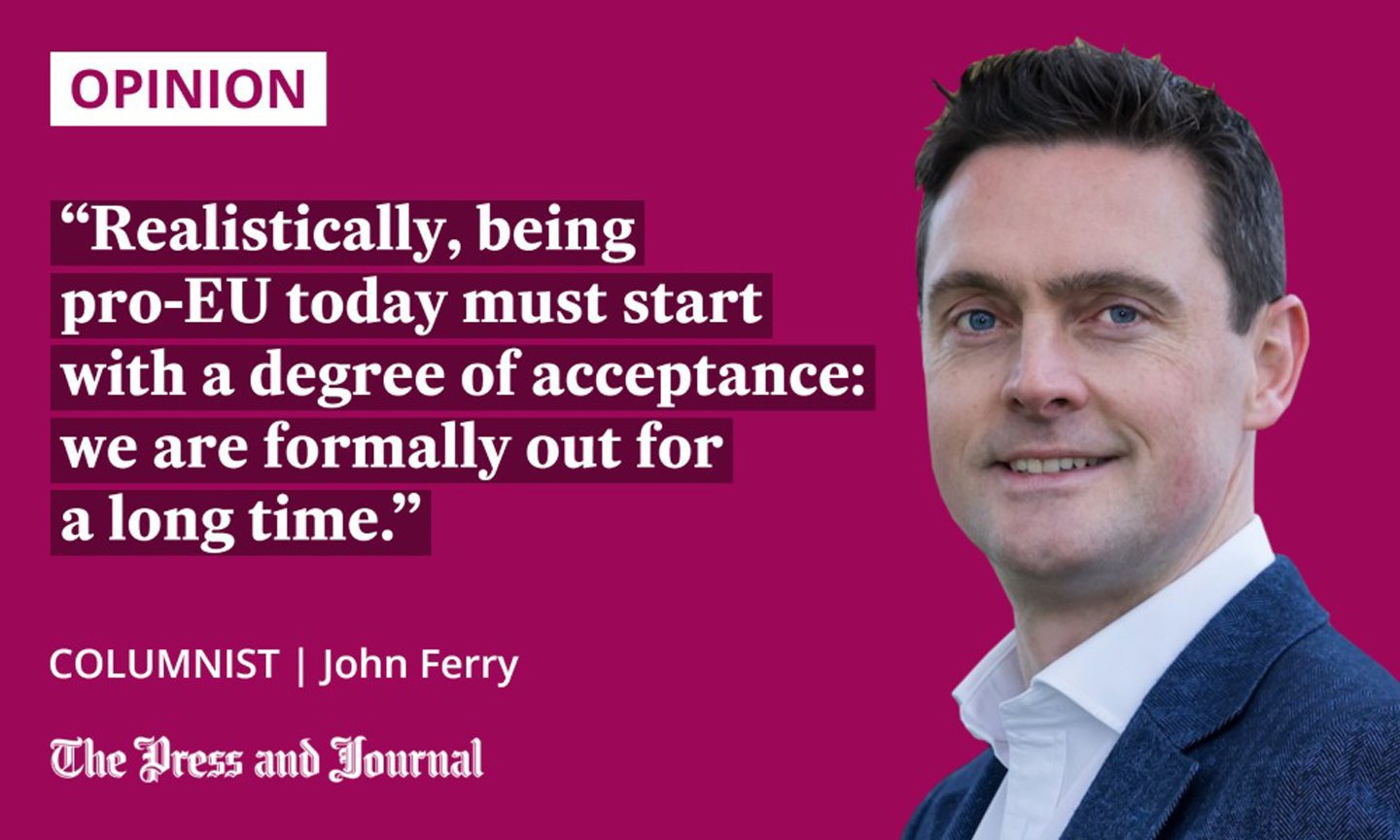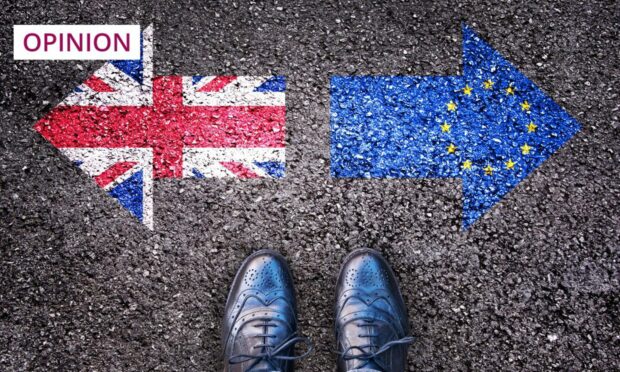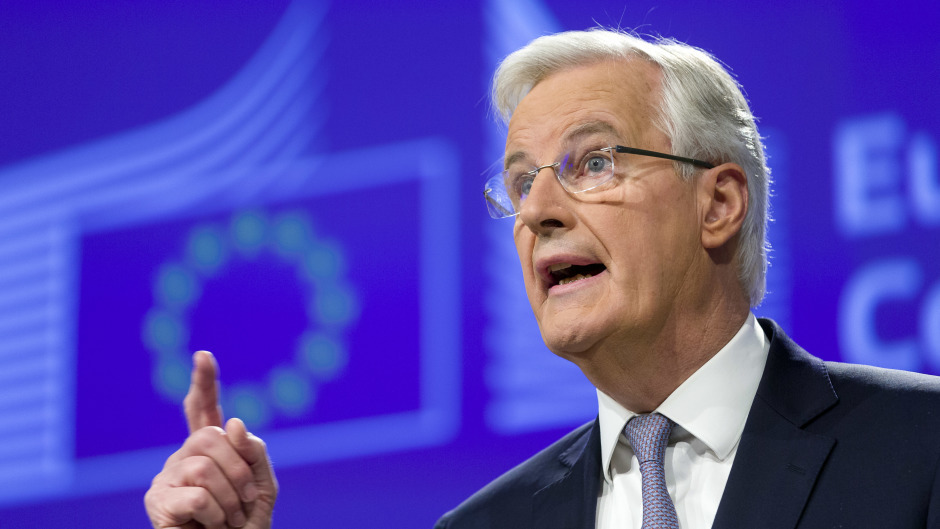At the risk of sounding like a cliché of the out-of-touch liberal metropolitan elite, I’ll never forget the shock of seeing the Brexit result come in in the early hours of June 24, seven years ago.
As someone who had campaigned passionately for a Remain vote, seeing Nigel Farage’s glee as he processed his unexpected win was hard to take.
You might assume, then, that the recent pronouncements from ex-EU Brexit negotiator Michel Barnier would come as some comfort to a committed Europhile. Speaking earlier this month, Barnier said Britain can reverse Brexit and rejoin the EU any time it likes. Great.
But Barnier also signalled that a rejoining UK would have to accept the current entry requirements of new member states. Previously, the UK had an exceptional deal that meant Britain could retain its own currency and be outside the Schengen Area of fully abolished border controls. The UK also benefitted from a rebate on its contribution to the EU budget.
Asked by Robert Peston if the terms of re-entry would be “significantly worse” than last time, Barnier hinted strongly that the bespoke arrangements of the past would not be part of the deal. The UK Government “knows exactly what are the terms and the conditions” of entry, he said. He then gave the obvious examples of being part of the single market and the customs union, but it seemed clear that meeting all the entry requirements demanded of today’s new joiners would be required.

The big one is the euro. We know that a consistent majority of Brits would now prefer to be in the EU, but polling also shows only a minority of around one in four people would be willing to accept the euro as our currency if it were a requirement of rejoining. Wanting back in but not wanting the euro almost certainly means not getting back in.
There are other economic complications. Although little talked about in the UK, the EU became a major issuer of debt in response to the Covid crisis.
In an unprecedented act of fiscal solidarity, European capitals in 2021 banded together to approve some €800 billion in new joint borrowing. Would a rejoining UK be willing to accept liability for the debts of other member states?
Rejoining the EU would have to be a gradual process
The fiscal implications of rejoining could also be impacted by proposed changes to the common European fiscal framework, which are currently being debated in Brussels.
The EU is historically fiscally conservative. Having allowed members to break with that tradition to borrow huge amounts for the Covid emergency, there is now a push to get back to strict budget discipline. Germany’s finance minister, Christian Lindner, wants the original fiscal rules of the Maastricht Treaty rigidly enforced. These stipulated deficit ratios of 3% of GDP, and maximum debt-to-GDP ratios of 60%.
“Common fiscal rules have to ensure a rapid and sufficient reduction of deficits and debt ratios,” says Lindner. Clearly, if Germany has its way then rejoining will mean signing up for austerity.
Ardent Europhiles like me need to be honest about these truths. Realistically, being pro-EU today must start with a degree of acceptance: we are formally out for a long time; gradual repair work while incrementally moving closer to the EU again is the best we can hope for. To pretend there is a simple route back would be to indulge in easy populism.
Is the SNP being honest when it comes to hopes of EU membership?
Nowhere is that populism more prevalent than here in Scotland. The SNP is currently campaigning on the basis it can deliver “independence in the EU”. It can’t. The party’s “sterlingisation” currency policy for an independent Scotland alone would stop Scotland meeting the entry requirements.
For an independent Scotland to get in, we would have to be prepared to transition between four different currency arrangements in coming years: our current arrangement of full integration within the sterling zone, then a move to unofficially use the British pound without central bank support (sterlingisation), then a new Scottish currency, then the euro. Who is ready to sign up for that?
As much as it pains me to admit it, there is currently no realistic route back to EU membership
And, then, there are the fiscal constraints that would apply to an independent Scotland in the EU. There would be no Barnett funding to help Scottish budgets, and no opt-out of the upcoming new European fiscal framework. This is before even considering the economic costs of a trade border with England.
Is the SNP being honest about any of this? Of course not. As always, the party’s EU position is simply aimed at maximising the chances of breaking up Britain.
As much as it pains me to admit it, there is currently no realistic route back to EU membership. There is much work to be done, however, in bringing us closer again to Europe. For that, we need realists, not populists.
John Ferry is a regular commentator on Scottish politics and economics, a contributor to think tank These Islands, and finance spokesperson for the Scottish Liberal Democrats


Conversation